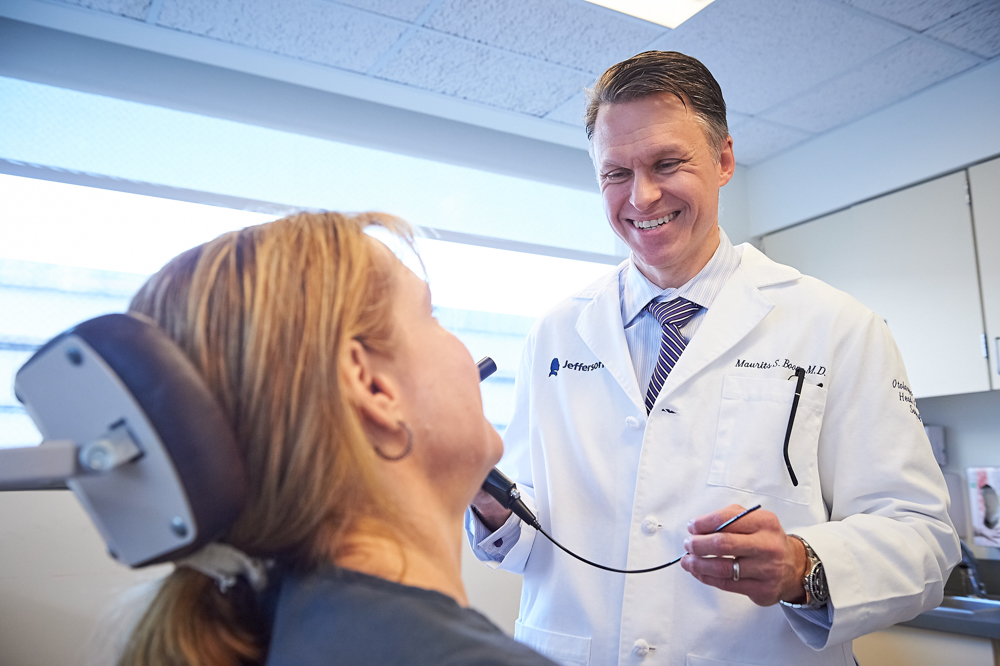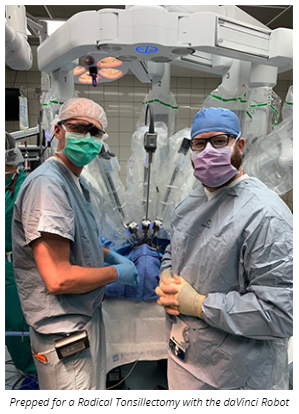Allergy Symptoms That Point to the Need for Otorrinolaringologia Support
Allergy Symptoms That Point to the Need for Otorrinolaringologia Support
Blog Article
Checking out the Area of Otolaryngology: What to Anticipate When You Get In Touch With an ENT
Otolaryngology, frequently referred to as ENT, encompasses the diagnosis and therapy of ear, nose, and throat disorders. For those experiencing related issues, getting in touch with an ENT professional can supply clearness and relief. Comprehending what to expect throughout such appointments is necessary for reliable communication and treatment. This introduction will lay out crucial elements of the ENT experience, including usual reasons for gos to and the procedures associated with diagnosis and therapy.

Comprehending Otolaryngology: An Overview
Otolaryngology, commonly referred to as ENT (Throat, nose, and ear) medicine, is a specific branch of medication that concentrates on the diagnosis and therapy of conditions affecting these critical areas of the human body. This area includes a large range of conditions, including those related to hearing, balance, respiratory feature, and speech. Otolaryngologists are educated to handle both surgical and medical therapies, making use of advanced strategies and innovations. Their know-how expands past traditional conditions, addressing problems such as allergies, sinus infections, and hearing loss. In addition, they play a crucial function in the management of head and neck cancers, offering complete treatment customized to specific client requirements. On the whole, otolaryngology continues to be essential for keeping wellness and quality of life in damaged people.
Common Reasons to See an ENT Specialist
Several people look for the experience of an ENT expert for a selection of factors, showing the diverse nature of problems that impact the nose, throat, and ear. Typical issues consist of chronic sinusitis, which usually leads to persistent nasal blockage and facial discomfort. Allergies and their linked signs, such as sneezing and itching, additionally prompt brows through to these experts (Voice). Hearing loss, whether unexpected or steady, is one more substantial factor for examination. Furthermore, individuals might look for evaluation for throat conditions, consisting of relentless hoarseness or swallowing problems. Sleep apnea, identified by cut off breathing during rest, is regularly attended to by ENT professionals also. Each of these problems highlights the significance of specialized treatment in taking care of complex ENT-related health and wellness concerns
Planning for Your ENT Visit
When getting ready for an ENT visit, it is vital to gather appropriate information and think about any type of certain problems. Clients ought to put together a thorough clinical history, including previous ear, nose, or throat issues, surgical procedures, and present medications. Documenting symptoms-- such as extent, period, and regularity-- can provide important insights for the ENT expert. Furthermore, individuals must prepare a listing of inquiries they desire to ask, guaranteeing that all concerns are attended to throughout the check out. Bringing along any type of appropriate medical records or test outcomes can better help the ENT in comprehending the patient's problem. Finally, patients should validate their consultation information, consisting of time, day, and area, to lessen any type of last-minute complication. Proper preparation can enhance the performance of the assessment and lead to far better end results.
What to Expect During the Consultation
As the appointment begins, the patient can anticipate to engage in a complete discussion with the ENT professional regarding their signs and case history. The professional will ask about the duration, frequency, and intensity of signs such as hearing loss, nasal blockage, or sore throat. Furthermore, the individual's previous clinical conditions, drugs, and any relevant family history will certainly be reviewed, helping the expert in creating a complete understanding of the individual's wellness. The ENT may likewise inquire about lifestyle aspects, such as exposure to allergens or toxic irritants. This open discussion establishes a structure for the examination, ensuring that the client's worries are dealt with and setting the phase for any needed evaluations or recommendations for treatment.
Diagnostic Examinations and Treatments in Otolaryngology
A series of diagnostic examinations and treatments are vital in otolaryngology to precisely review and detect conditions impacting the nose, throat, and ear. Common examinations consist of audiometry, which determines hearing function, and tympanometry, evaluating middle ear stress. Nasal endoscopy allows visualization of the nasal passages and sinuses, while laryngoscopy takes a look at the throat and singing cords. Imaging methods, such as CT scans and MRIs, offer detailed views of head and neck structures. Allergic reaction screening may also be conducted to identify triggers for sinus or respiratory issues. These diagnostic devices enable ENT specialists to this content develop a complete understanding of people' conditions, making certain customized and effective management plans. Appropriate diagnosis is important for successful therapy results in otolaryngology.
Treatment Options Used by ENT Specialists
ENT experts provide a selection of therapy choices tailored to resolve particular conditions impacting the throat, nose, and ear. These therapies vary from conventional methods, such as medication and way of living modifications, to more invasive treatments. Allergies might be managed with antihistamines or immunotherapy, while persistent sinusitis may need nasal corticosteroids or sinus surgery. For hearing loss, ENT professionals commonly suggest listening devices or medical treatments like cochlear implants. In situations of throat disorders, alternatives can consist of speech therapy or procedures to eliminate blockages. Furthermore, they might offer advice for handling sleep apnea, consisting of the use of CPAP gadgets or surgical treatments. Overall, the objective is to improve people' lifestyle via customized treatment and efficient treatment techniques.
When to Seek Follow-Up Treatment With an ENT
When to seek follow-up treatment with an ENT professional is vital for taking care of recurring symptoms or issues associated to nose, throat, and ear problems, acknowledging. Patients ought to consider scheduling a follow-up visit if symptoms persist in spite of first therapy, such as persistent ear pain, nasal blockage, or throat pain. Changes in hearing, balance issues, or uncommon nasal discharge might also require more evaluation. Additionally, if a client experiences side impacts from recommended medicines or has undergone a surgery, follow-up treatment is important to monitor recovery and resolve any concerns. Timely examinations can assure effective management of problems, protect against possible difficulties, and give comfort concerning one's health. Seeking follow-up care promotes proactive health monitoring in otolaryngology.
Regularly Asked Inquiries

What Qualifications Should I Search for in an ENT Specialist?
When looking for an ENT specialist, one must try to find board qualification, appropriate experience, and solid patient evaluations. Additionally, reliable interaction skills and a compassionate strategy can considerably enhance the overall therapy experience.
Exactly how Do I Choose the Right ENT for My Demands?
Picking the ideal ENT specialist entails examining their credentials, experience, and person evaluations (ENT surgery). It is vital to ponder their communication design and method to treatment, guaranteeing they line up with the individual's certain health requirements and choices
Are There Any Type Of Threats Related To ENT Procedures?
The risks connected with ENT procedures may include infection, bleeding, anesthesia difficulties, and potential damages to bordering structures. Individuals should talk about these threats with their physician to comprehend specific concerns and guarantee notified choices.
How Can I Manage Stress And Anxiety Prior To My ENT Appointment?
To manage stress and anxiety prior to a consultation, individuals can practice deep breathing workouts, picture positive results, prepare inquiries ahead of time, and seek support from close friends or family, promoting a feeling of confidence and peace.
What Should I Do if I Experience Side Effects From Treatment?
If adverse effects from treatment happen, the person must immediately report them to their medical care service provider. Changes to therapy or added treatments might be necessary to ensure safety and effectiveness in managing their condition - Hearing. As the appointment begins, the person can expect to involve in an extensive discussion with the visit their website ENT specialist about their symptoms and clinical history. These diagnostic devices enable ENT professionals to develop a complete understanding of patients' problems, making certain tailored and efficient management plans. ENT professionals offer a selection of therapy alternatives customized to attend to certain conditions affecting the ear, nose, and throat. When seeking an ENT specialist, one should look for board qualification, appropriate experience, you could try these out and strong patient evaluations. Choosing the ideal ENT professional involves reviewing their qualifications, experience, and individual evaluations
Report this page